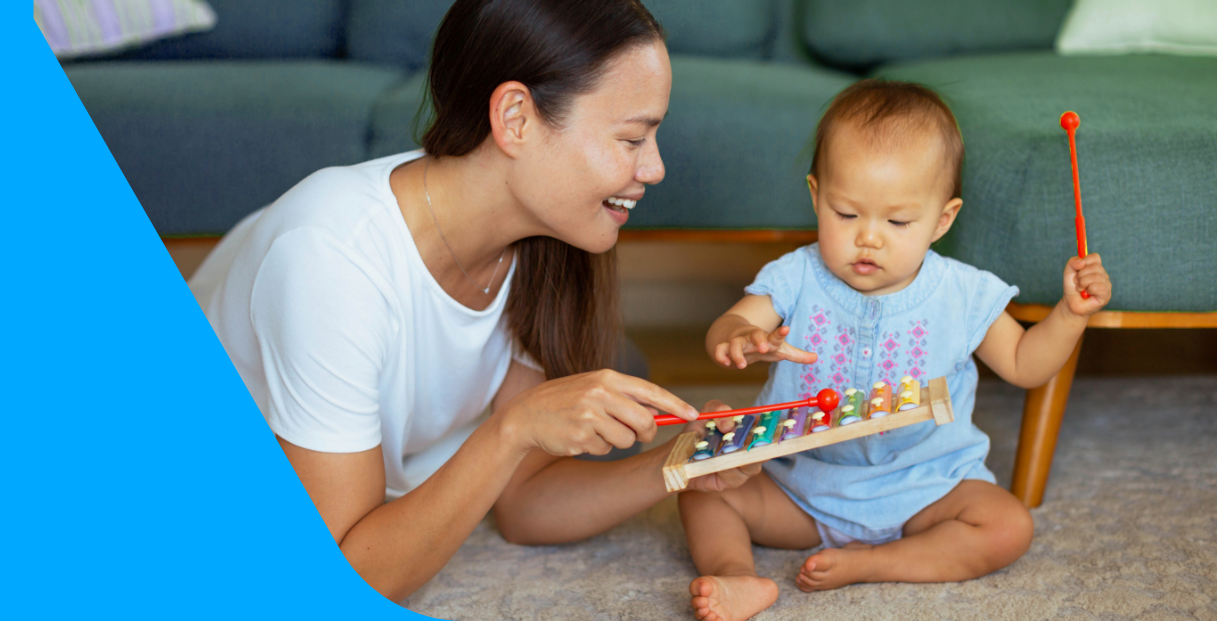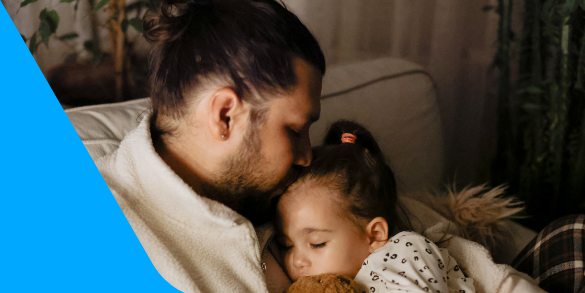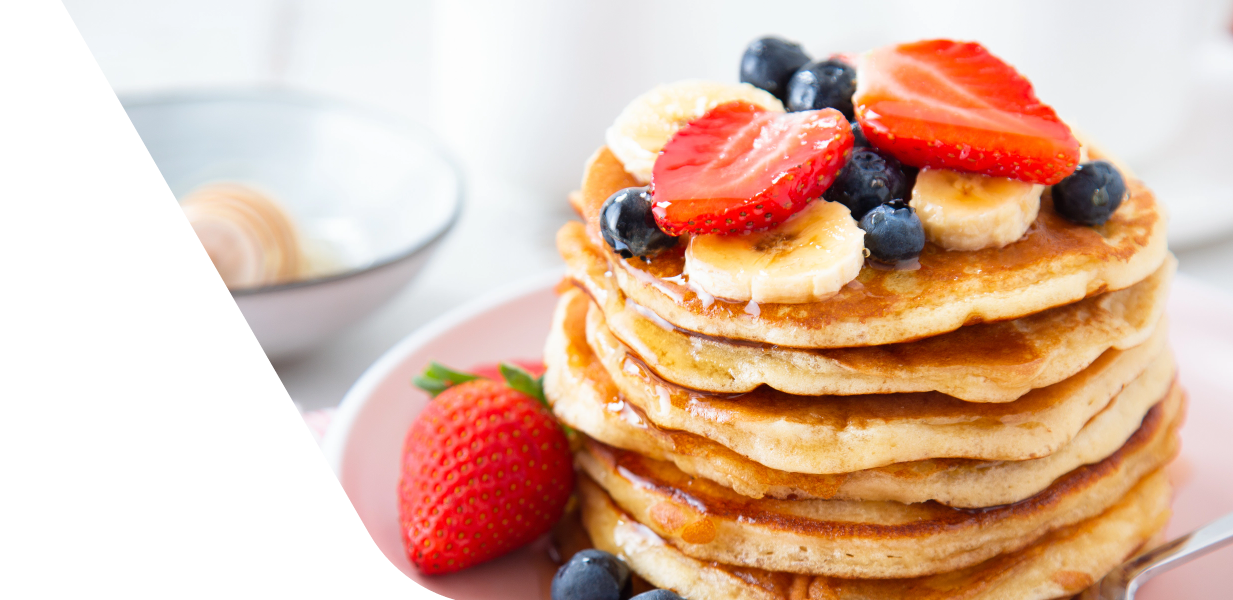At this stage, your toddler’s cognitive abilities are rapidly developing since his brain growth will be 85 percent complete by his third birthday. This allows him to solve simple problems and identify shapes and patterns such as colours, sizes and numbers.1 And physically, he has enough control over his fingers to pick up and move small objects precisely – rather than with his whole hand and is able to move and climb much faster. These developments create a wonderful opportunity to play games that help sharpen his cognitive and physical skills, and build confidence to try new things. Read on to discover fun games for toddlers that the whole family can enjoy together.
Exploring shapes and sizes
Toddlers love playing with uncooked rice, uncooked beans, dry noodles and other tiny dried food items. Put some in a bowl, and let your toddler dump them on the table and pick them up with their fingers, which can help sharpen his fine motor skills. Join in with a few cups of different sizes and show him how to measure, scoop and pour them back in the bowl. Of course you can only do this if your toddler isn’t putting things in his mouth, because these objects are choking hazards.
If your toddler has stuffed animals, bring them into the living room and see if he arranges them. He might line them up by size, color, or preference, which helps exercise his cognitive and fine motor skills. Then, ask him why he arranged them the way he did. Even if it’s only a couple words, explaining why he arranged them sharpen his communication skills.
Get down and boogie
Turn on a kids' CD or a toddler music video on TV. Your toddler will move and play, especially if you join in by singing and dancing. Songs such as B-I-N-G-O, Twinkle Twinkle Little Star and London Bridge are great for adding hand motions to help develop gross motor skills, plus language and listening skills as he sings along to the words.
Name the animal
Print off some images of animals, paste them on a piece of cardstock or poster board, and label them: cow, goat, pig, dog, etc. Show your child the poster, and teach him the names of the animals while pointing to each picture. Make the animal sounds as well to help him remember. Hang the poster on a wall or the refrigerator at your toddler’s height. You can use this to 'quiz' your toddler as his language skills develop and he is able to make the animal sounds or point to each and say the name.
Make a “personalized” puzzle
Cut a large photo of your child into simple geometric shapes. The more pieces you cut, the harder the puzzle will be. Then, give the puzzle to your toddler to put together. You’ll be delighted when he picks up pieces and moves them into place, and he’ll be delighted when he sees his face.
Bat the ball
Tie a string to a beach ball or balloon and fasten the end to the top of a doorway or the ceiling, or to a fence outside. The string should be long enough to allow your toddler to just reach the ball when he is standing up. The goal is to have your child bat at the ball while maintaining balance. For older toddlers, you can shorten the string so they have to reach higher (making balancing harder) or jump to hit the ball.
Stack Blocks
Stacking blocks with your toddler helps sharpen his fine motor skills. Using blocks of different colours and sizes, lay them out on a flat surface and build a tower together. Record how many blocks he can stack each time and set it as a goal for the height of the next tower.
Blocks are useful in many games for toddlers such as making mazes, and matching shapes drawn on paper and boards. They also allow your toddler to build whatever he wants, which helps him feel more comfortable with independent playtime.2
Tube Bowling
Line up paper towel or toilet paper tubes on the floor in a bowling arrangement and get a small ball, such as a tennis or Wiffle ball. Show your toddler how to roll the ball at the tubes to knock them over and to count how many are down. Have a competition with him to see who can knock down the most.
Games for toddlers help exercise their cognitive and motor skills, and give them confidence to try new things. At two years of age, your toddler likes to copy others, especially older children and adults. So by playing with him – and maybe getting siblings involved – he’ll look forward to organized games because it’s something the whole family enjoys doing together.







